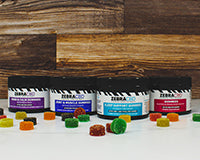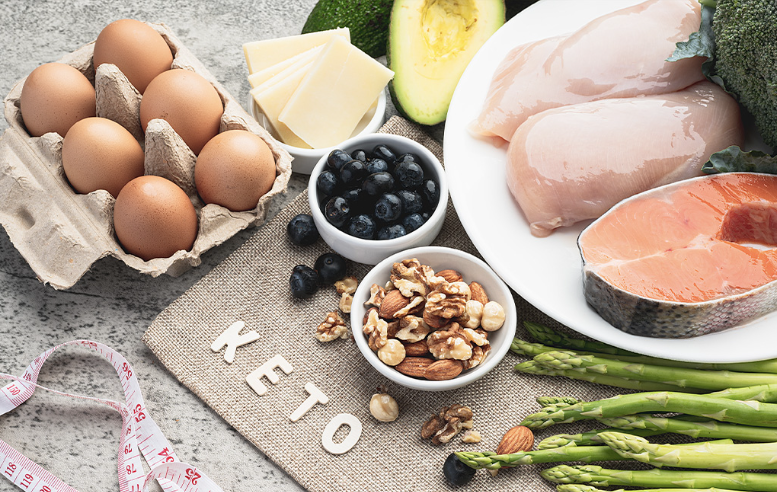
CBD products are widely used and touted for their potential relaxation and wellness benefits. But if you're a CBD user, you might wonder, is CBD detectable in drug test results?
While CBD won't show up on a drug test as a positive result, CBD products containing traces of THC might. Luckily, there are ways you can tell which category your favorite products (such as CBD oils or CBD topicals ) fall under.
Currently, there's no specific CBD drug screen test, so standard urine drug testing (as well as blood and follicle testing) does not reveal anything about a person being an active CBD user.
This guide will outline everything you need to know about CBD and drug tests, including how much THC it takes to produce a positive testor false positive and how to find a THC-free CBD product for your needs. If you're worried about an upcoming drug screening or a recently failed drug test, read on.
Why Won’t CBD Show Up On a Drug Test
Currently, there's no specific CBD drug test, so standard urine drug test (as well as blood and follicle testing) does not reveal anything about CBD use. That said, a standard drug screen will test for THC, which is where this subject becomes more complicated.
CBD or cannabidiol is a cannabinoid derivative of the hemp plant and is the second most active ingredient in marijuana. While the hemp and marijuana plants are both the same species, the hemp plant can be made categorically distinct in the following ways:
- Low THC – The hemp variety of the cannabis plant contains 0.3% or less THC (the compound that produces a high), while a marijuana plant contains more than 0.3% THC.
- Federal guidelines– Since the enactment of the 2018 Farm Bill, the federal government requires that hemp derived CBD products in the United States cannot contain more than 0.3% THC per federal limit.
Hemp seeds, hemp oil and hemp fibers have all been used in a variety of industries outside of CBD, but the recent change in legality has brought more interest to this versatile plant.
According to the guidelines set by the Department of Health and Human Services, THC must be present in a concentration of at least 50 nanograms per milliliter, which would mean you would need to intake ⅓ of a marijuana joint-worth of THC to fail the drug test.
Anything less than that isn't considered a positive resultor even a false positive.
These guidelines apply to any urinedrug test, which is the most commonly used workplace drug screening test. So the next time you're deciding how to wind down after work, consider using CBD products that comply with federal regulations. Furthermore, learn about CBD laws by state to make sure CBD is legal where you live.
What Could Cause CBD Products to Show Up On a Drug Test?
In situations where CBD products produce a positive drug test result, THC is present. This happens because not all CBD is derived from hemp. Harvesting and refining techniques can also impact what compounds are found in your CBD.
While CBD won’t cause you to fail a drug test, using CBD products comes with risks. Several scenarios could lead to a positive test, such as:
- CBD products containing THC – Even products labeled isolate CBD can contain traces of THC if you purchase them from an untrustworthy source. Both broad and full spectrum CBD typically contain small amounts of THC. If you’ve been using a CBD extract or product containing THC, you might fail a drug test.
- Inaccurately labeled CBD products – CBD products aren’t closely regulated by the FDA. While there is some oversight, disreputable businesses may not accurately report the correct THC level of their products. Thus, the label doesn’t always match what’s actually in the product. If you purchase a poor-quality CBD product, you’re rolling the dice with the contents.
- Cross-contamination of CBD products – If you purchase CBD products from a dispensary that also sells cannabis, there’s a small risk of cross-contamination. This would result in a small amount of THC ending up in your CBD products. Additionally, if you are vaping CBD sold from a dispensary, you may run a higher risk of accidentally ingesting higher quantities of THC.
Does CBD show up on drug test results? Not unless any of these factors are involved. Additionally, it’s crucial to remember that THC is fat-soluble, meaning it may stay metabolized in your system long after initial consumption. If THC is present in your CBD product, a THC metabolite may be detectable on a drug test for 3 to 30 days.
The only way to ensure that you can avoid a positive test result is by sourcing quality CBD products from reputable sellers.
How to Choose the Right CBD Product
When you’re navigating the world of CBD products, it can be tricky to choose the right ones for your needs. From CBD gummies to CBD topicals, there are several methods for enjoying CBD. However, if a drug screening test is in your future, you want to be certain that you’re getting only CBD without any additional compounds.
Let’s look at the three different types of CBD that are on the market.
#1 Full Spectrum CBD
As the name implies, a full spectrum CBD product contains all of the compounds that naturally occur in the plant from which it’s derived. This includes the:
- CBD
- Flavonoids
- Terpenes
- Other cannabinoids (including THC)
Unlike some other types of CBD, full spectrum extracts are taken from marijuana plants. Because it’s derived from marijuana, there will be traces of THC in the product. It’s difficult to tell exactly how much THC is in full spectrum CBD products because it can vary widely depending on the manufacturer.
Does CBD get you high? It’s not likely that there will be enough THC to produce the high that you get from marijuana, but there might be enough to trigger a positive drug test.
Full spectrum CBD products are widely available. However, if you’re concerned about the amount of THC in the product interfering with an upcoming drug test, you should opt for a broad spectrum or pure CBD isolate product instead.
#2 Broad Spectrum CBD
Broad spectrum CBD is the middle ground of CBD products. It contains all of the natural compounds that full spectrum has except for THC. You’ll most likely find broad spectrum CBD in the form of an oil. It’s also frequently used for topical body products such as:
- Balms
- Creams
- Joint-relief gels
If THC content is a concern, seeking out a broad spectrum product can help with that worry. However, you should always make sure you’re purchasing your CBD products from a trusted source. Product labels can be inaccurate, and you might end up with a product that has THC in it when you thought you were purchasing a broad spectrum CBD oil.
If you’re wondering, does CBD oil show up on a drug screening, the answer may depend on whether or not you’re consuming a broad spectrum product.
#3 CBD Isolate
Lastly, CBD is sold in isolate form. This is a pure type of CBD that doesn’t contain any other compounds. After processing to remove any other compounds, you’re left with pure, crystalized CBD. These crystals are ground up into a powder and used in products, like:
- Gummies
- Oils
- Creams
- Capsules
The refining process for CBD isolate is more difficult, thus these products may be more expensive than full spectrum and broad spectrum CBD. However, CBD isolate is an excellent choice when you:
- Need assurance that your products don’t contain any THC
- Want to consume larger amounts of CBD
- Prefer a product with no odor or flavor of its own
- Have a drug test coming up and want to make sure there’s no issue
How Can You Ensure Your CBD Products Don’t Contain THC?
Ultimately you’re responsible for doing the legwork to ensure your CBD products are THC-free if you need to take a drug test or are otherwise concerned about THC content.
Typically, there are three things to add to your THC-free checklist.
#1 Look For Label Accuracy
One of the biggest issues plaguing CBD products is inaccurate labeling. In fact, a study by Penn Medicine found that nearly 70% of CBD products sold online were mislabeled.
Inaccurate labels mislead the user about the levels of THC in the product. They can also over and underestimate the amount of CBD present. To ensure you’re getting what the label promises, you should:
- Carefully read the ingredients
- Note the listed amount of CBD the product contains
- Check the type of CBD the product is made from
#2 Find the COA
What’s the COA, you ask? The COA, or Certificate of Analysis, is your assurance that the product has been tested by a third party. The third party is an outside lab without a connection to the company.
You can usually find the COA by scanning a QR code right on the package. If you can’t find a QR code, you can check the company’s website.
The COA should:
- List the same ingredients as the product label
- Match the label’s claim for the concentration of CBD in the product
- Indicate if there’s any THC in the product
- Be no more than 1 year old
If the product label and COA don’t match, that’s a red flag that the company might not be transparent about what ingredients are in the product.
#3 Research the Company
Lastly, you should research the company. There are a few ways to approach this:
- Contact them and ask questions about ingredients and manufacturing practices.
- Identify where the company sources its hemp.
- Check the FDA’s website to see if the company has received any warning letters.
Ideally, the company will source its hemp from the United States, and organically grown hemp is optimal.
Types of CBD Products on the Market Today
CBD products come in many different forms. The best one for you depends on how you want to take CBD and what you want to use it for:
- Edibles – CBD edibles are popular in gummy form. People love that they are available in many different flavors and are delicious to consume. Plus, CBD-infused gummies may help to promote your overall health and wellness.
- Oils – CBD oils are taken sublingually or under the tongue. They come in a variety of flavors and work quickly since they’re absorbed directly into the bloodstream. Try a premium CBD oil to support mental clarity and tranquility.
- Tablets – Tablets are another way to consume CBD. If you want to promote a positive mood or induce relaxation, CBD tablets are an excellent, easy-to-use choice.
- Topicals – You can also use a CBD topical application like a CBD cream or balm to ease joint stiffness and muscle soreness.
Now that you know the different types of CBD products, you may be wondering about
traveling with them. For example, can you travel with CBD gummies? It’s never a bad idea
to familiarize yourself with any CBD travel restrictions.
Shop With Confidence at Zebra CBD
If you’re worried about your CBD products interfering with a drug test, there are steps you can take to ensure that they don’t. CBD itself won’t cause a problem, but if you take full spectrum products containing a trace amount of THC, you might get a positive drug test result.
Zebra CBD has the widest selection of CBD products — from the best CBD oil to the most robust topicals and chewable tablets — and we’re the only CBD company with a Label Accuracy Guarantee™, so you can rest assured that you’re getting exactly what you want. Check out our selection today.
Sources:
Popular Science. Does CBD Show Up On a Drug Test? https://www.popsci.com/sponsored-post/does-cbd-show-up-on-a-drug-test-guide-and-best-cbd-products/
American Chemical Society. Chemical Profiling of Medical Cannabis Extract. https://pubs.acs.org/doi/10.1021/acsomega.7b00996
The Food and Drug Administration. FDA Regulations of Cannabis and Cannabis-Derived Products, Including CBD. https://www.fda.gov/news-events/public-health-focus/fda-regulation-cannabis-and-cannabis-derived-products-including-cannabidiol-cbd#approvedsec505
The Food and Drug Administration. Hemp Production and the 2018 Farm Bill. https://www.fda.gov/news-events/congressional-testimony/hemp-production-and-2018-farm-bill-07252019
Department of Health and Human Services. Mandatory Guidelines for Federal Workplace Drug Testing Programs. https://www.hhs.gov/guidance/sites/default/files/hhs-guidance-documents/2006164095-gr-frn_vol_82_7920_.pdf
Penn Medicine. Penn Study Shows Nearly 70 Percent of Cannabidiol Extracts Sold Online Are Mislabeled. https://www.pennmedicine.org/news/news-releases/2017/november/penn-study-shows-nearly-70-percent-of-cannabidiol-extracts-sold-online-are-mislabeled
Healthline. Does CBD Show Up on a Drug Test? https://www.healthline.com/health/does-cbd-show-up-on-a-drug-test#cbd-types










